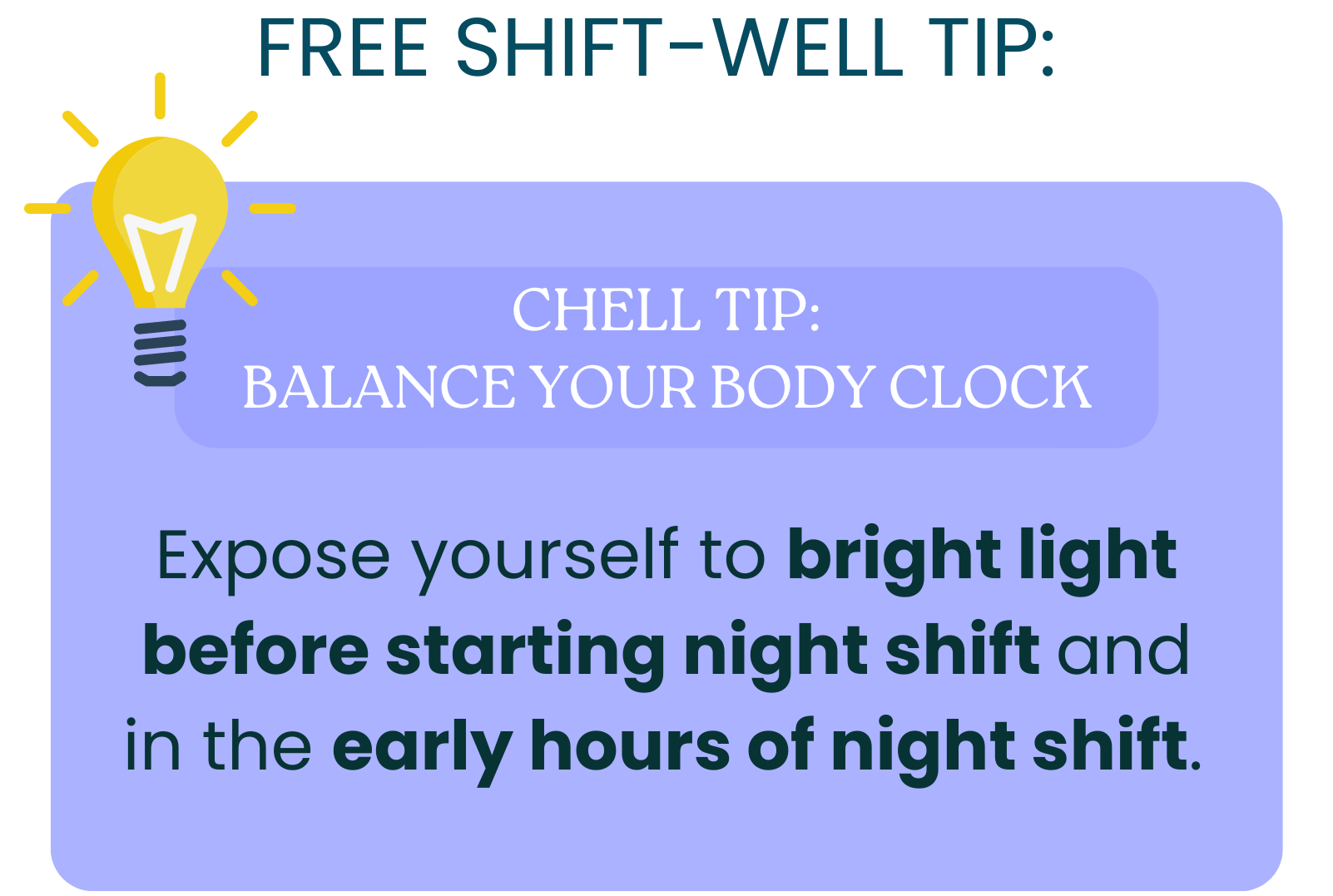In a randomised controlled trial published in Nature Communications (2025), participants were split into 2 groups (both of which were exposed to a simulated night-shift environment), with one group eating across both day and night and the other restricted to daytime eating hours only. Importantly, meal composition did not alter between groups, the sole variable was meal timing.
The results were striking:
Why this matters for your business:
Cardiovascular disease, fatigue, and reduced alertness aren’t just health issues; they can also translate to safety and productivity risks. For industries reliant on shift work, the evidence is clear: practical lifestyle strategies are a key factor in reducing health risks and enhancing both safety and productivity.
How Chell helps:
At Chell, our SHIFT WELL program translates complex, cutting-edge science like this into digestable, personalised strategies your employees can actually apply; whether that’s eating schedules, light exposure timing, movement tactics, or fatigue-proof recovery routines.
The result?
Chellappa, S. L., Qian, J., Vujović, N., Williams, J. S., & Scheer, F. A. J. L. (2025). Daytime eating during simulated night work mitigates changes in cardiovascular risk factors: Secondary analyses of a randomized controlled trial. Nature Communications, 16, Article 3186. https://doi.org/10.1038/s41467-025-57846-y


